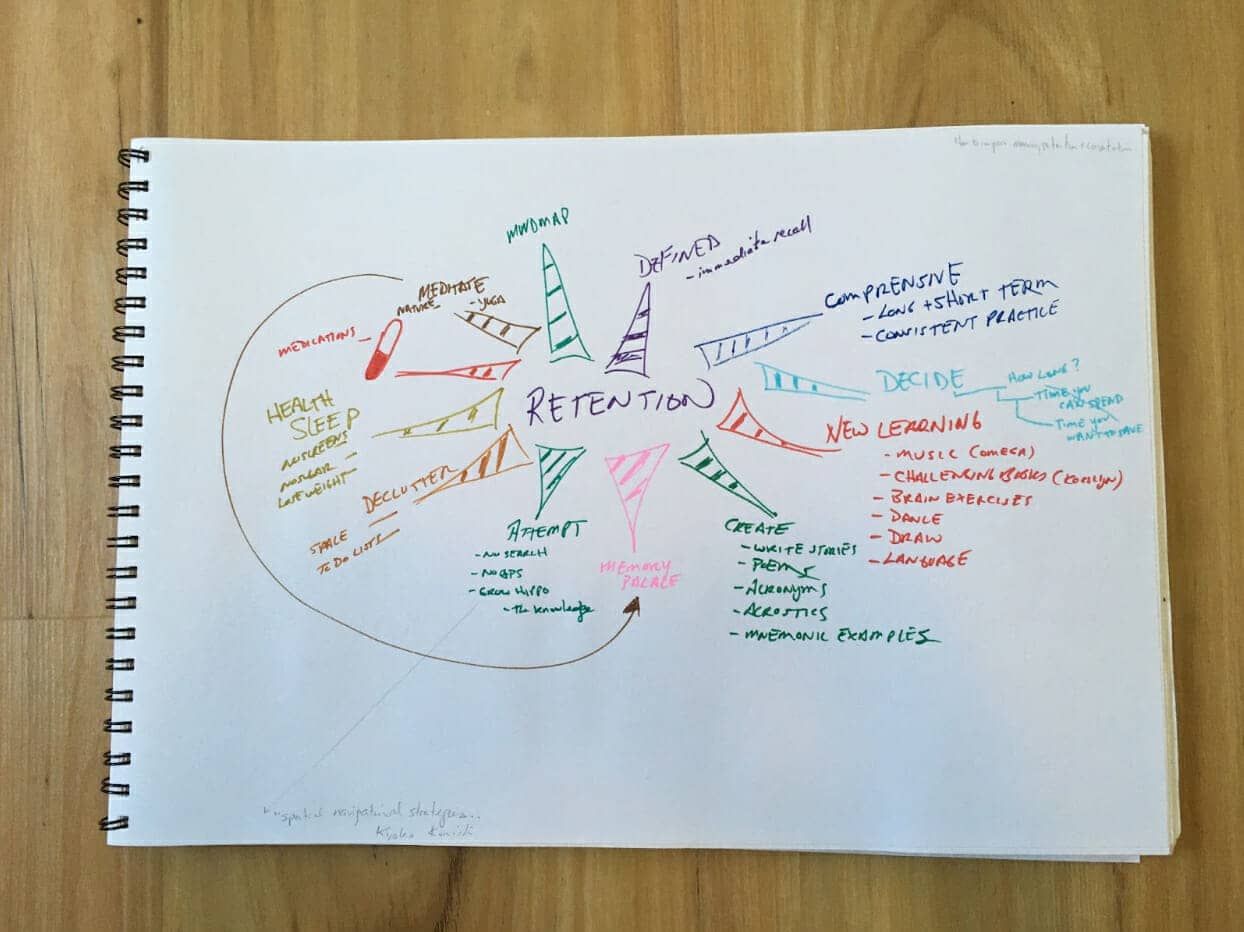 Some say that linguistic intelligence started out as one of Howard Gardner’s theories of multiple intelligences.
Some say that linguistic intelligence started out as one of Howard Gardner’s theories of multiple intelligences.
Maybe.
The fact is that many philosophers have identified different kinds of intelligence going back much earlier than Plato and even Confucius.
Indeed, it was Confucius who said in the opening of The Analects that the greatest pleasure is verbally repeating something you’ve learned.
I think Confucius was right about that. But make no mistake:
Gardner’s definition of linguistic intelligence is still powerful. In his own words, linguistic intelligence is:
“Sensitivity to the spoken and written word and the ability to master languages and the capacity to use language to accomplish certain goals.”
But what does “sensitivity” really mean?
Is he saying that some people are born with a knack for reading books with ease and speaking well?
Or does he mean that everyone has the opportunity to become a linguistic learner?
I believe anyone can develop advanced linguistic intelligence.
And Gardner’s definition should not be your only source of linguistic intelligence examples.
So if you’re ready to dive deep into a full discussion of linguistic intelligence and its many characteristics, let’s get started!
What Is Linguistic Intelligence?
Experts widely considered linguistic intelligence to be a subset of verbal intelligence.
In this regard, it is governed to a large extent by your verbal memory.
You need everything working in order because verbal intelligence and linguistic intelligence help you:
- Speak
- Understand spoken language
- Learn new languages
- Improve vocabulary in your mother tongue
- Use objective and subjective reasoning
- Think logically about problems and solve them
- Write and deliver great presentations
Naturally, anything involving language draws upon your current level of linguistic dexterity.
The Number One Characteristic of People With Advanced Linguistic Intelligence
Noam Chomsky is a linguist and author of many books on linguistics who distinguishes between “competence” and “performance” when it comes to verbal skill.
For Chomsky, your competence comes down to how well you understand language. For example, if you can distinguish between a verb and a noun, you have a higher level of competence than someone who can’t.
Performance, on the other hand, is how well you use the rules of grammar. Paradoxically, it’s possible to have a high level of unconscious competence in a language without actually knowing grammar.
You see an orientation towards performance a lot in the polyglot community where learners use deliberate practice to get the languages they’re learning to the “muscle memory” of the mouth.
But when many people get hung up on grammar, they wind up spinning their wheels and suffering low linguistic intelligence because they focus on the wrong parts.
After all, you can always observe the grammar after you’ve learned to perform the language. This is a key point I made in my detailed tutorial on memorizing grammar rules.
So, if you want to enjoy advanced linguistic intelligence, here’s what I suggest:
Take action. Being an action-taker is the number one common denominator amongst people with not only high linguistic intelligence. You see it amongst people who have increased their IQ too.
Linguistic Intelligence: Nurture Or Nature?
Speaking of IQ, you might be wondering if people are born with linguistic intelligence.
Chomsky certainly thinks so. A key part of Chomskyan linguistics is the idea that humans automatically acquire language.
If he’s right, then you’re definitely born with it. You’re also born with the ability of your brain to perform acoustic encoding. This feature of human cognition allows you to remember things you hear.
Even better, with cognitive training, you can improve your linguistic abilities, often quite quickly.
Let’s look at some strategies for doing that next.
4 Ways To Enhance Your Linguistic Intelligence
As we go through this list, there’s no special order.
But I would suggest that you explore and experiment with all of them for best results. That way you can enjoy multiple benefits and improve all of your multiple intelligences.
This is important because if Howard Gardner was right about one thing, it’s that each of us can find the things that we’re good at and improve our skills in these areas.
Tony Buzan noticed this about the idea of multiple intelligences and made it the core of his work with mind mapping. So let’s start with that practice first.
One: Mind Mapping
In Mind Map Mastery, Buzan shows how both Leonardo Da Vinci and Charles Darwin used sketches in combination with words to help them conceive of their ideas.
This approach is not new or specific to geniuses. Chinese characters started as simple pictograms linked to the sounds of Mandarin Chinese. Most characters are like mind maps unto themselves and they give your brain a great workout.
I personally use mind mapping a lot to help me figure out the best ways to script my YouTube videos and blog posts like the one you’re reading now.
By stripping things down to basic keywords and using lots of colors, I help my own brain structure what I’m going to say. That way, everything flows much more smoothly.
In Chomskyean terms, what I’m doing is putting a bit of constraint on my competence with English and keeping things simple. Adopting the simple rules and the one-sheet space of a mind map helps enable my ability to perform the ideas in language.
It’s not exactly “less is more.” It’s more like something Giordano Bruno said in De Minimo:
“The Grammarians enslave themselves to the words. We subdue the words instead. They follow the use which we indicate to them.”
Can you see how this statement also applies to what we said above about language learners who perform what they’re learning as opposed to “enslaving” themselves to grammar?
If you’ve fallen into that trap yourself, you can use mind mapping as part of developing the mental strength that sets you free while crafting much more powerful goals.
Remember: That’s what Gardner defined as a huge part of linguistic intelligence. The ability to accomplish goals. That’s why I started with mind mapping. It’s a fast and effective path to unlocking your ability to do so alongside keeping a journal.
Two: Learn Languages
As we’ve seen, Gardner thought that linguistic skill involves the ability to learn new languages.
How do you do that?
You make language learning part of your life. These days, you can easily study many languages from home. There are even ways that Netflix and other streaming services can help you pick up another tongue.
Personally, I keep learning Chinese in small doses while studying Latin, Greek and maintaining my German.
I also take on memory missions related to foreign languages, such as memorizing scripture in a variety of source languages. As far as I can tell, this is one of the most direct ways to instill advanced linguistic skills in your brain.
Check out my case study on doing exactly this with the Book of John in Latin if you’d like a direct example:
Three: Read Like A Pro
Many people know they don’t spend enough time reading.
Worse, they’re aware of how much time they fritter away on ineffective skimming and scanning techniques that really don’t work.
The truth is that if you want to read faster, you need to do exactly what Gardner suggests: Have goals.
That and understand that the number one path to reading faster involves improving your vocabulary.
How can you make this happen?
Simply put: Pick just one topic. Read only books on that topic for approximately three months with perhaps one unrelated book to help fend off topic anxiety.
Then, make note of the vocabulary you don’t know or some turns of phrase that you’d like to memorize. And for getting those words into memory so you can enjoy boosts to your language skills and reading comprehension at the same time, continue with my next tip.
Four: Exercise Your Memory
I’m a huge fan of learning the ancient memory techniques while learning from the best contemporary memory athletes and including contemporary scientific findings like the principles of active recall.
There are many memory techniques you can pursue. Here’s a power tutorial on 20 of the best.
My favorite is the Memory Palace technique. It’s what allows you to memorize dozens of words a day in multiple languages.
But in order to make sure that you’re getting the most out of the technique, it’s important that you do more than just memorize. To boost your linguistic intelligence, make sure that you follow up with:
- Reading
- Writing
- Speaking
- Listening
Basically, you want to embed everything you memorize in a set of productive activities.
This is important because linguistic intelligence is never just in your head. It’s in your hands, your mouth, your ears and in your critical thinking efforts.
If you’d like to learn more about using memory techniques, grab my free course now:
It will help you master everything related to getting more words and phrases into your memory so that you can practice the multiple levels involved in becoming a true language-based learner.
What Is A Linguistic Learner?
You are.
Everyone capable of reading the words on this page is already a genius.
That’s what Tony Buzan used to say. He said that the only problem we face is that people start forgetting the brilliant intelligence they were born with. They stop exploring and experimenting with the world.
But you don’t have to belong to this group.
You can enjoy each and every moment as an opportunity to grow.
As you do, words will be a huge part of the process.
So what do you say?
Are you ready to boost your linguistic intelligence?
Make it happen!
Related Posts
- Crystal And Fluid Intelligence: 5 Ways to Keep Them Sharp
What is fluid and crystallized intelligence, how are they interrelated and how can you hone…
- 3 Language And Memory-Preserving Ways To Combat Linguistic Deskilling
If you've ever felt like you're losing proficiency in a language - including your mother…
- 3 Ways to Improve Your Reasoning Skills (With Examples)
It's easy to improve your reasoning skills. These detailed strategies and examples will help you…






